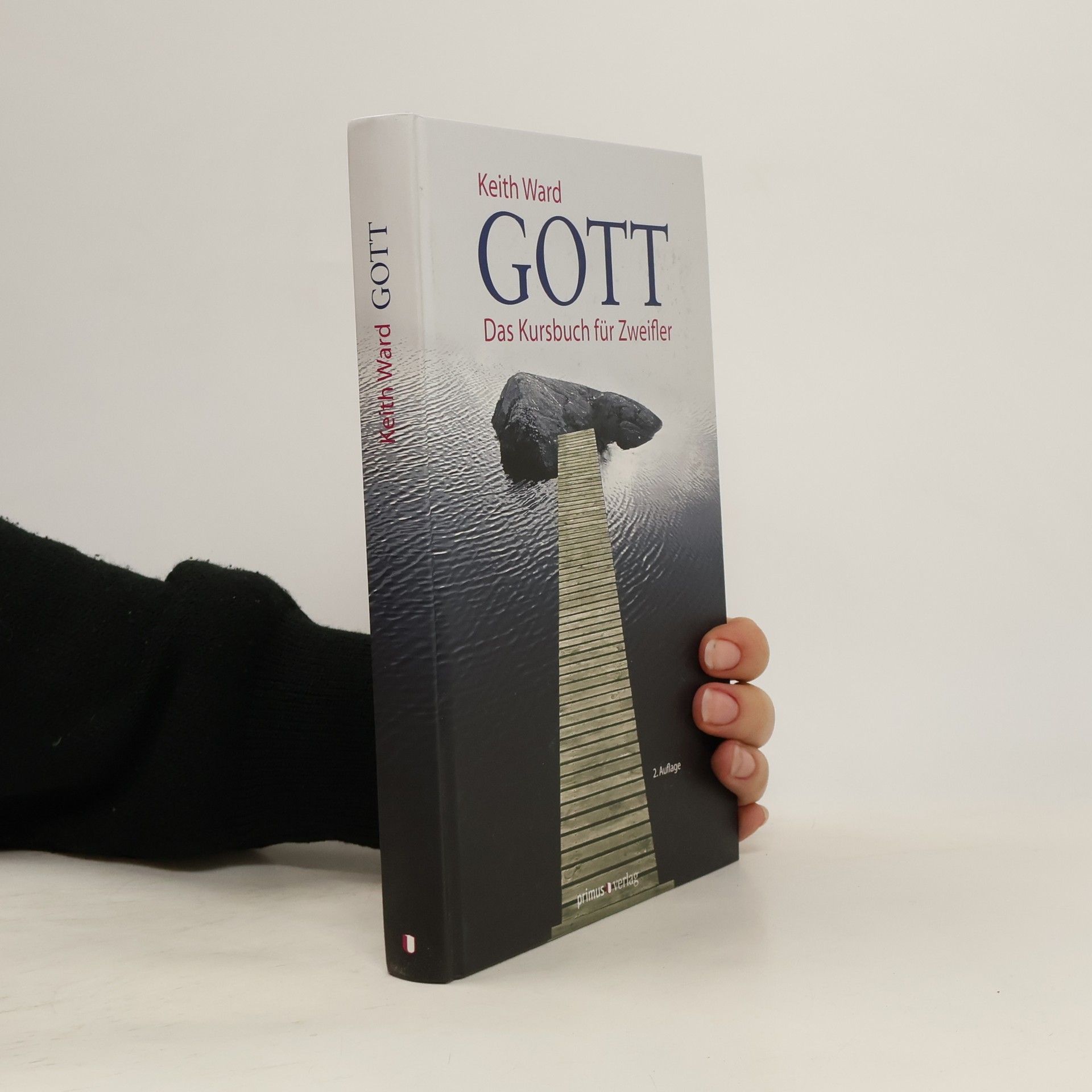Keith Ward Bücher
Keith Ward ist für seine tiefgründige Auseinandersetzung mit Theologie und Philosophie bekannt, die er während seiner herausragenden akademischen Laufbahn entwickelte. Seine Schriften befassen sich mit der komplexen Beziehung zwischen Glauben und Vernunft und erforschen die Natur des Göttlichen mit Klarheit und Zugänglichkeit. Wards unverwechselbarer Stil bietet den Lesern eine nachdenkliche Erkundung komplexer spiritueller und intellektueller Themen. Seine Arbeit wird für ihre intellektuelle Strenge und ihre Fähigkeit, tiefgründige Kontemplation anzuregen, hoch geschätzt.






Diese ungewöhnliche Einführung in die Geschichte des theologischen Denkens stellt einen großen Unbekannten in den Mittelpunkt. Wie können wir über einen Gott oder mehrere Götter denken? Welche Begriffe sind angemessen und wie könnte man Erfahrungen mit Göttlichem beschreiben? Wenn Keith Ward sich und seinen Lesern solche Fragen stellt, dann will er nicht nur die theologischen und philosophischen Feinheiten in der jahrhundertealten Denktradition des Glaubens vorstellen, sondern vor allem Lust machen auf das intellektuelle Abenteuer Religion. In vergnüglicher und durchaus respektlos scheinender Weise werden die Wege und Irrwege der Theologiegeschichte referiert, theologisches Vorwissen ist dabei nicht nötig. Skurrilität kommt dabei ebenso vor wie Weisheit, plumpe Annäherungen neben ausgefeilten Systembauten. Am Ende hat der Leser oft Bekanntschaft mit Philosophen geschlossen, oft große Gläubige und Systembauer kennengelernt - aber er hat mindestens genauso oft einfach gelacht.
Personal Idealism
- 96 Seiten
- 4 Lesestunden
Keith Ward's theology is explored through the lens of personal idealism, addressing key Christian doctrines such as God, revelation, and the Trinity. The book delves into significant topics like the kingdom of God, life after death, the incarnation, and atonement, presenting Ward's insights in relation to contemporary science and philosophical thought. This comprehensive account provides a thoughtful examination of how traditional beliefs can be understood in modern contexts.
The Priority of Mind
- 90 Seiten
- 4 Lesestunden
Exploring the relationship between mind and matter, this philosophical work defends the idea that mind is fundamental and precedes material reality. It presents idealism as a key teaching of classical philosophers while aligning it with contemporary scientific understanding. Written in an accessible style, the book invites readers to reconsider the nature of consciousness and reality, challenging the notion that the mind is merely a by-product of brain activity.
The Christian Idea of God
- 236 Seiten
- 9 Lesestunden
A robust defence of the philosophy of Idealism - the view that all reality is based on Mind - which shows that this is strongly rooted in classical traditions of philosophy.
My Theology
- 96 Seiten
- 4 Lesestunden
A short definitive account of Keith Ward's theology, based on the philosophy of Personal Idealism. It records Ward's views about God, revelation, the kingdom of God, life after death, the incarnation, atonement, and Trinity.
God, Chance and Necessity
- 212 Seiten
- 8 Lesestunden
The 'new materialism' argues that science and religious belief are incompatible. This book aims to debunk such arguments, whose proponents have included figures from Hawkings to Dawkins.
Why There Almost Certainly is a God
- 159 Seiten
- 6 Lesestunden
Richard Dawkins claimed that 'no theologian has ever produced a satisfactory response to his arguments'. This book demonstrates that not only how Dawkins' arguments are flawed, but that a perfectly rational case can be made that there, almost certainly, is a God.
First published in 1989. Routledge is an imprint of Taylor & Francis, an informa company.
Sharing in the Divine Nature
- 168 Seiten
- 6 Lesestunden
The book presents a compelling argument for the New Testament perspective that all creation is ultimately to be united in Christ, challenging traditional views of God as unchanging and impassible. Keith Ward critically examines these classical theological concepts, asserting that the cosmos plays a significant role in shaping divine nature. He posits that the universe is destined to reveal God's creativity and relational essence, emphasizing a vision of God characterized by beatific, agapic, redemptive, and unitive love.

